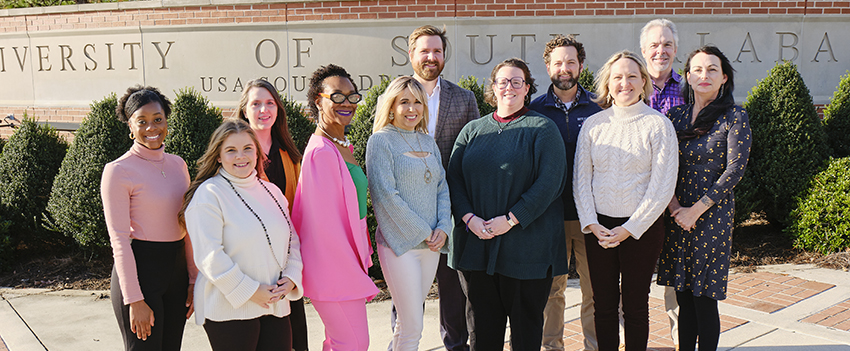Meet Our Staff


John Friend, Ph.D.
Licensed Psychologist
Executive Director
Theoretical Orientation: Dr. Friend’s clinical work is driven by his interest in the application of behavioral principles in understanding topics such as purpose, meaning and values, the therapeutic relationship, and present moment focused work.
Professional Interests: Acceptance and Commitment Therapy, brief solution-focused therapy, integrated healthcare, sport and performance psychology, anxiety-related disorders, relationship issues, and coping with life transitions.
Professional Memberships: Association for University and College Counseling Center Directors, Association for Contextual Behavioral Science

Joel Dobson, LPC, NCC
Associate Director
Theoretical Orientation: A collaborative, client-centered approach that integrates evidence-based treatment modalities to build on each client’s unique personal strengths in order to assist them in achieving personal goals and improving their overall sense of well-being.
Professional Interests: Family of origin issues, childhood trauma, life transitions, young adulthood, integrated healthcare, anxiety, mood disorders, and substance use

Vallarie Jones, M.S., LPC
Counselor
Theoretical Orientation: Integrated psychodynamic-interpersonal process approach that
draws upon cognitive-behavioral, solution-focused, reality, and encompasses other
theoretical strategies that are best suited for each individual client to be their
best self.
Professional Interests: Stress management, family and relationship issues, anxiety, depression, health and wellness, coping skills, and correctional behavioral health.
Professional Memberships: Alabama Counseling Association, Alabama College Counseling Association

Rhena Baxter
Associate Counselor
Theoretical Orientation: An integrative, client-centered approach drawing from humanistic, existential and holistic based therapies with emphasis on a person’s self-growth and self-actualization. Therapy may include both talk therapy and nontraditional therapies such as guided imagery and mindfulness-based modalities to enhance client awareness and overall well being.
Professional Interest: LGBTQIA+ affirming care including exploration of gender and personal identity, adaptation to life changes and transitions, interpersonal issues, building trauma resiliency, stress, anxiety, and coping skills.
Professional Memberships: Alabama Counseling Association, National Board of Certified Counselors

Alyssa M. Moody, M.S., ALC
Associate Counselor
Theoretical Orientation: A collaborative approach centered around client values and self-identified goals utilizing aspects of various cognitive behavioral interventions such as mindfulness, acceptance, or distress tolerance. Each student holds something incredibly unique to the world and my hope is to help them identify their strengths and promote their overall sense of self.
Professional Interests: Acceptance and Commitment Therapy, spirituality issues, PTSD and other traumatic experiences, substance use, anxiety, depression, academic stress, and life transitions.
Professional Memberships: American Counseling Association, Alabama Counseling Association

Lauren Hodges, M.A., LMSW
Associate Counselor
Theoretical Orientation: A collaborative, client-centered approach utilizing aspects of various evidence based practices including cognitive behavioral, solution-focused, and motivational interviewing techniques. It is my goal to engage with each client as an individual and identify their unique strengths and social location in order to best aid them in reaching their goals.
Professional Interests: Stress management, anxiety, life transitions, young adulthood, academic distress, interpersonal relationships, identity work, family dynamics, and coping skills.

Becky Smith, Ph.D. LPC, NCC
Counselor – College of Medicine
Theoretical Orientation: An integrated approach that utilizes cognitive theories, motivational interviewing, emotion-focused and solution-focused strategies.
Professional Interests: Stress, anxiety and mood disorders, substance use, eating disorders, trauma, emotional intelligence, grief/loss, social media and wellbeing.
Professional Memberships: American Counseling Association, Alabama Counseling Association, Alabama College Counseling Association

Franki Humphreys
Masters-Level Clinical Mental Health Counseling Intern
Theoretical Orientation:I firmly believe that counseling should provide a safe space where clients feel heard, accepted,and valued. Additionally, I trust that everyone possesses the inner strength to grow and heal. I will take the time to listen and understand while also challenging the negative thought patterns one might have.
Professional Interests:Anxiety, depression, stress management, coping skills, interpersonal relationships, trauma, and self-esteem.
Professional Memberships:Chi Sigma Iota Counseling Academic and Professional Honor Society, and the Alabama Counseling Association

Emma Folk
Masters-Level Clinical Mental Health Counseling Intern
Theoretical Orientation: I focus on helping clients recognize how their thoughts, beliefs, and choices influence their current feelings and behaviors. By focusing on the present while guiding you towards a future that you want, I want to help clients gain insight into unhelpful patterns and begin making more effective, value-driven choices.
Professional Interests: Disordered eating behaviors, interpersonal relations, life transitions, anxiety, and depression.
Professional Memberships: American Counseling Association, Chi Sigma Iota, Psi Chi

Isaiah Taylor
Masters-Level Clinical Mental Health Counseling Intern
Theoretical Orientation: I believe in viewing an individual holistically while building a collaborative therapeutic relationship between myself and my clients. I will use an integrated approach with Acceptance and Commitment Therapy and Adlerian therapeutic concepts as a foundation to best fit each client and promote individual growth. I emphasize acknowledging and embracing thoughts and feelings without judgment and focusing on the strengths of clients.
Professional Interest: Sport and performance psychology, men’s mental health (emphasis on African-American men), sleep hygiene, emotional regulation, health and wellness, life transitions, interpersonal relationships, anxiety, and depression
Professional Memberships: Chi Sigma Iota and American Counseling Association

Amanda Bozeman
Secretary


